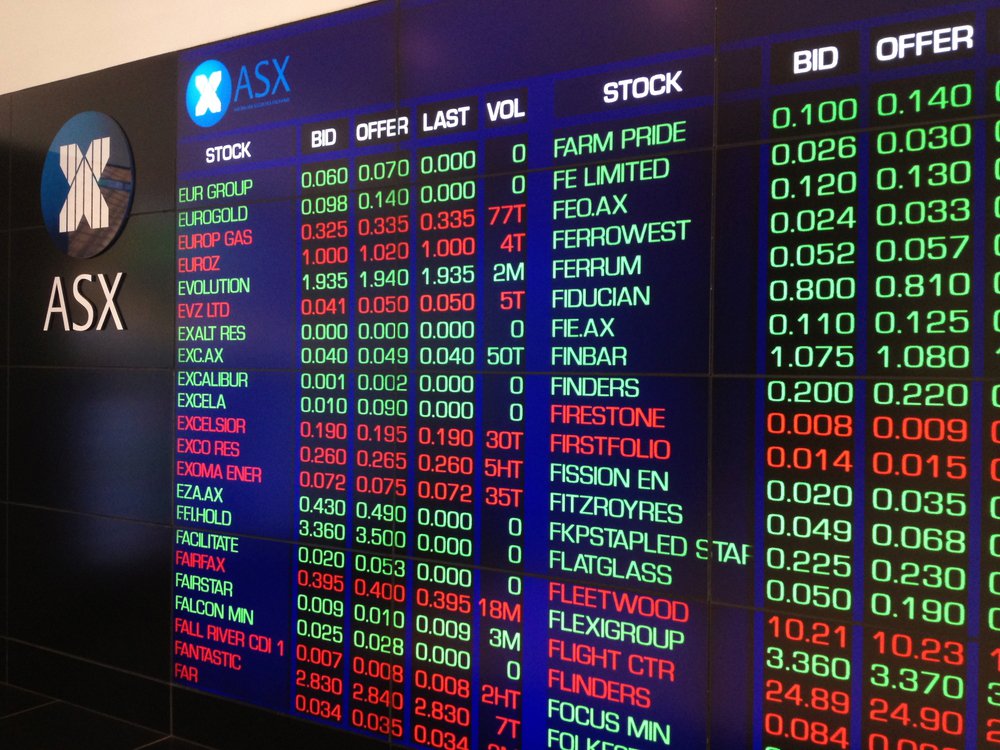2X ROI:
Double-Dip Your Content
Marketing Efforts

There's lots more you can get out of your content marketing efforts.
The term “content marketing” is a little bit of misnomer. The service that’s designed to brand and market your company can actually provide many other business functions beyond “just marketing.” In name alone “content marketing” prevents many companies from looking beyond the assumed marketing-only benefits. But companies who delve into content marketing slowly discover that their company-branded media is starting to support other business efforts such as reducing operating expenses, attracting new employees, or even being a source of revenue. With the help of other content marketing experts, I’ve compiled the following video and article highlighting the non-marketing benefits of content marketing.
Recruiting
How often have you heard a company tell you they have a great corporate culture? Company culture can mean so many different things. Without actually seeing it in action, it means absolutely nothing.You can actually show corporate culture by allowing each employee to shoot a video explaining how they do their job. Shoot interview videos of company events, or maybe create video profiles of each employee. “A strong talent brand established through content can help you recruit faster and attract people who are a better culture fit, both of which reduce the overall cost of hiring,” said Kerry O’Shea Gorgone, host of the Marketing Smarts podcast and director of product strategy, training at MarketingProfs.
Another method to drive interest in your employer brand is through traditional “thought leadership”-style content marketing. “Being seen as a source for certain topics naturally leads to the perception that the brand is ‘dominant in a particular category’ and that attracts the type of talent that wants to be part of that particular team,” said Paul Dunay, financial services & US Brexit marketing leader at PwC.
Training
You'll learn just by creating content.“The process of creating a remarkable piece of content is an education in itself,” said Jason Miller, global content marketing leader for LinkedIn. In college, I took statistics and did well, but I was only studying to get a good grade. As a student you can get by with ‘sort of’ knowing the topic. That changed once I became a statistics teaching assistant and tutor. When you’re responsible for teaching you need to understand the subject well enough to explain it to others. Similarly, once you start creating content for a business community, you’ll spend a lot of time educating your audience about industry issues. “Mapping out subjects for the people you want to reach has the side benefit of helping you refine your own knowledge and expertise,” said Bob Knorpp, host of The Beancast.
Industry relations
A journalist has a great networking excuse.“There is a lot of love that goes into creating an insightful piece of content,” said LaurieAnne Lassek, CMO of ThinkSmart. “It might look like someone just ‘whipped up’ a video, but in reality, there were very likely a lot of steps and people with input along the way.”A positive relation begins when you first express interest in the individual. The act of creating content is a positive relationship-making effort where you get to make relations with coworkers, customers, potential customers, investors, and industry insiders. “I've had the chance to work with Salesforce customers, create relationships, and learn from them. They tell me their stories. I write about, and share their experiences. I really get to know them, and they know me, too,” admitted Amanda Nelson , senior manager, AppExchange content and community at Salesforce.
“In a values-driven marketplace you’re appealing towards those who are also interested in driving this kind of change,” explained Shel Holtz, principal of Holtz Communications + Technology. By creating media, companies can align themselves with a cause, beyond just issuing a press release. The content can be a demonstration of your organization’s values as well as your tools and talent. In the case of EFF we want the work to be successful, but we’re not fully altruistic. We want the industry to recognize our involvement as well. Beyond just philanthropy, Holtz believes that businesses must start expressing their values. “If you’re not values driven and contributing company profits, people are going to stop investing in you, coming to work for you, and buying your stuff,” warned Holtz.
Employee retention
“When individuals within the company publish the wisdom and expertise, and it’s recognized by the rest of the industry, it can have a deep impact on strengthening your company culture and build genuine pride in being a part of the company,” said Steve Farnsworth, CMO, Steveology Group.
Smaller companies can’t always rely on huge salaries or company perks. Creative public bragging can go a long way to attracting new employees. More importantly, it can retain the employees you currently have. “Showing employees that they work for a company that creates buzz and is creative and maybe even has a sense of humor too, that kind of stuff matters to people,” said Elinor Mills, SVP content marketing and strategy for Bateman Group. “Give people content they want to share with their friends and family. That makes them proud.”
“As employees encounter your content in the wild and see senior executives quoted in the media – there is a certain amount of pride (even bragging rights) that you just can’t get from an ‘all hands’ call or other corporate outings,” added PwC’s Dunay. And when others recognize the value of the content, go out of your way to let the company know, as Farnsworth did. For one client, he made sure that everyone knew how a piece of content they produced resulted in speaking opportunities, press interviews, and additional media. “Seeing co-workers published and praised had created a profound sense among the team that they worked at a company of experts,” said Farnsworth.
Set industry trends
One of the nice advantages of content marketing is you don’t necessarily need a product to sell to see value. Sometimes content marketing’s purpose is to educate your audience. Scott Vaughan, CMO at INTEGRATE, is living this right now as his company is prepping to bring a new solution to the market that offers a new paradigm for marketing technology.
“This content and communications is being utilized by all stakeholders. This includes our HR/recruiting team to attract talent, our executive team to bring investors to the table, our business development team to get the best partners on board, and our customer success team to help educate our current customers on what’s next,” said Vaughan. David Spark is the founder of the B2B tech content marketing firm Spark Media Solutions. Subscribe to his YouTube channel for content marketing tips or listen to his podcast, Tear Down Show.
What? You can make money from content?“One end goal of content marketing is to provide so much value that it becomes a profit center all its own,” said Josh Nite, content marketing lead at TopRank Marketing. His firm has produced eBooks for conferences such as Content Marketing World and MarketingProfs B2B Marketing Forum that were paid for by either sponsors or the conferences themselves. “It’s awesome when we can prove the ROI of our marketing. But it’s way more awesome if the content is turning a profit all on its own,” said Nite.
Reduce operating expenses
Research I did on the Sony A7S.If you have to repeat it more than once, make a video. Customer support media is one of the most quantifiable benefits of content marketing. For every person who watches a video or reads an article to solve a given problem, that’s one less call to customer service. Companies that are inundated by customer support calls, such as online backup provider CrashPlan, have lessened the blow of support requests by generating a flood of support articles and videos.
In some situations the community will create the educational content for you. For example, after purchasing a new Sony A7S camera, I took to YouTube to educate myself on how to use the excellent and absurdly complicated camera. I spent about four hours watching “how to” videos. Not one of those videos was produced by Sony. In addition, the inclusion of supportive media greatly reduces a sales staff’s need to manage small deals, noted Ali MacDonald, head of worldwide enterprise digital marketing for Bitdefender. Individuals and small businesses utilize these articles and videos to make purchase decisions on their own.
Low-cost market research
Even stuff that doesn't make it to the final piece is market research.With every action, Internet users are telling you what they do and don’t want. Sometimes they’ll tell you upfront by sending an email. But don’t count on them to always be so truthful. If you really want to know how they feel, you’ll have to make sense of their passive communications. What do they click on and consume, and what are they avoiding? “Content marketing gives you a chance to collect more information about your prospects and customers so that you can provide better value and relevance to them,” said Janet Cunningham, manager content marketing at DST Systems, who suggests you “test positioning of a new product or offer through paid search or headline testing.”
CONCLUSION: The whole business is content
“Everything you do as a business is a benefit of content marketing. Content is your product whether you recognize it or not,” noted Steve Kovsky, director, content and digital marketing for CrowdStrike. “You’re a content company that happens to make a product.” Your content runs through and can power every aspect of your business. To get there, just start thinking of your content as more than just “marketing.”
Chuck Reynolds
Contributor
Please click either Link to Learn more about – Inbound Marketing.
Alan Zibluk – Markethive Founding Member













